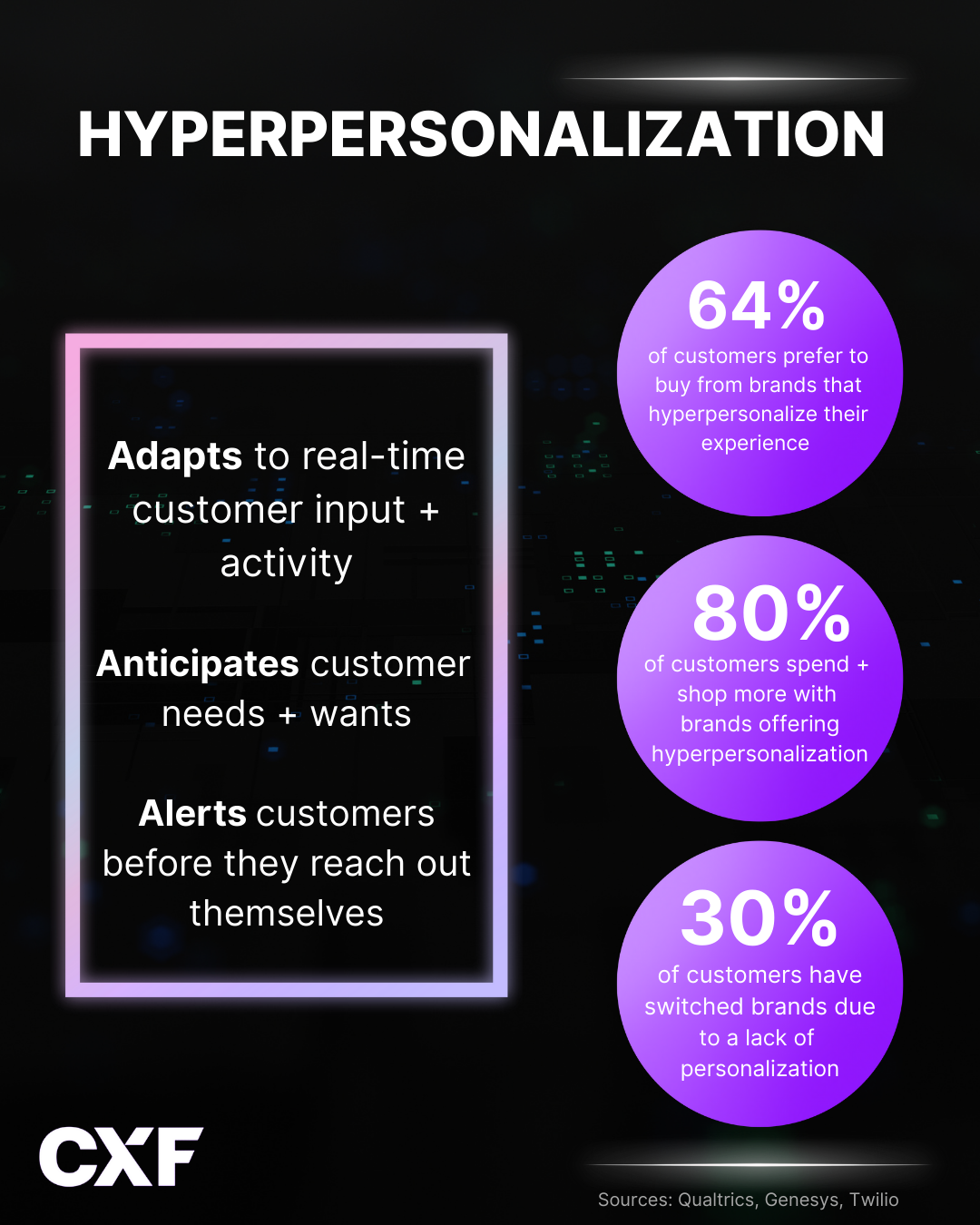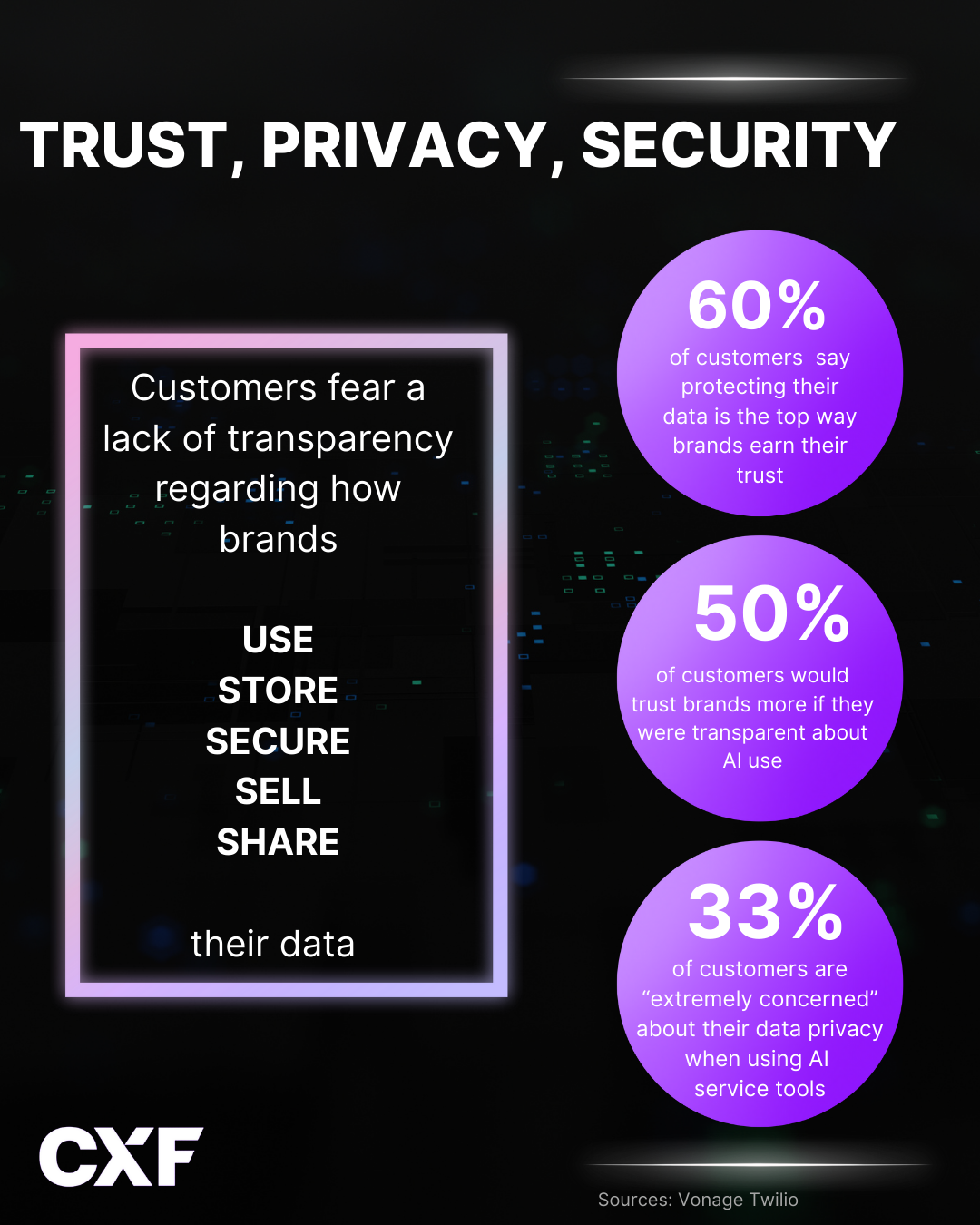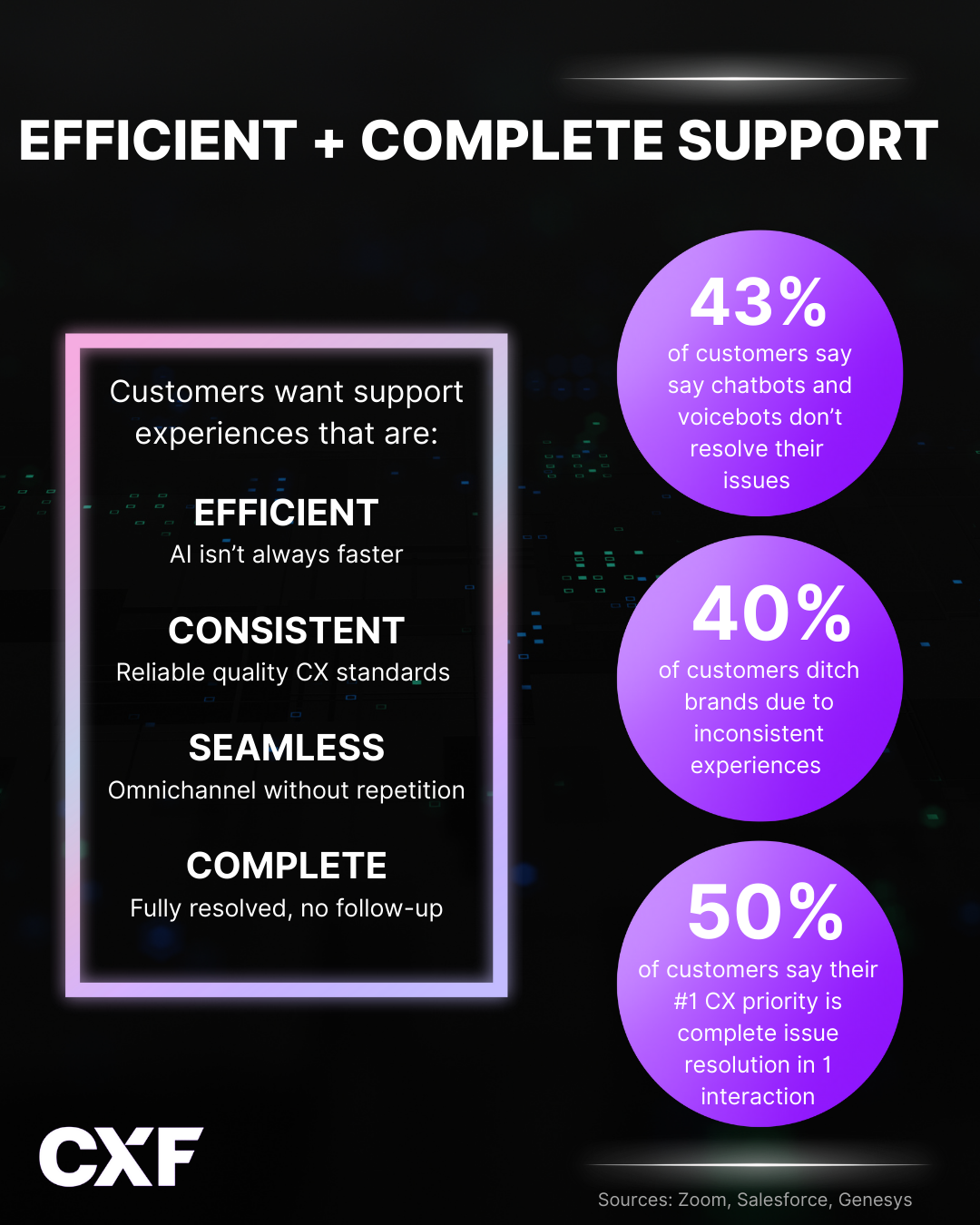August 19, 2025 • 7 min read
What Your Customers Really Want: The Top 5 Data-Backed Customer Priorities in 2025

CX Analyst & Thought Leader
August 19, 2025

I spent months reading over 150 customer experience whitepapers, research studies, and market reports to find out what customers really care about – not just what analysts like me tell you they do. In this two-part series, I’ll tell you the top 5 data-backed customer priorities in 2025.
Here are the first 3. I’ll reveal the final 2, plus my advice on how to give customers what they want while balancing fiscal and operational realities, this Thursday, August 21.
1. (Hyper) Personalized Customer Service

What Is Hyperpersonalization?
Hyperpersonalization uses historical data, real-time behavioral insights, conversational context, and predictive analytics to provide a highly tailored experience that aligns with an individual customer’s needs and preferences across every touchpoint. Unlike standard personalization, hyperpersonalization is dynamic and proactive. A hyper-personalized experience:
- Adapts according to real-time customer input and activity
- Anticipates customer needs and wants
- Alerts customers before they reach out themselves
Why Do Customers Want Hyperpersonalized Experiences?
In a word: convenience.
Hyperpersonalized service reduces the customer’s mental load, saves them time, and prevents disruptions to their life.
It reminds them to re-order their favorite contact solution a few days before they run out. It tells them when the expensive tee-shirt they’ve been eyeing for months finally goes on sale. It recommends products and services that make the customer’s life a little easier–and even adds customized offers to sweeten the deal.
Hyperpersonalized customer experiences show customers they are unique, important, and appreciated. It makes customer conversations less transactional and more personable, building emotional connections as a result.
What Does The Data Say?
- 80% of consumers globally say they will buy more, more often, from brands that consistently personalize the service experience[*]
- 64% of consumers prefer to buy from companies that tailor their experience to their wants and needs[*]
- 4/10 customers say they’ve searched for alternatives when a company failed to provide a personalized customer experience, and about ⅓ of customers say a lack of personalized service caused them to buy from another brand[*]
2. Trust, Data Privacy, and Security

What are Top Customer Security + Privacy Concerns?
Customers today generally do not trust companies with their data. They are worried about the lack of transparency regarding how brands use, store, secure, share, and sell their sensitive personal data. Customers feel they lack control over their own data, and that too many companies are putting profitability over their right to privacy.
They’re concerned about the potential financial and social consequences of data breaches or exploitation, especially as biometrics and AI-powered behavioral analysis rise in popularity.
Do Customers Trust Companies to Ethically Use AI?
Customers have major concerns about how companies use AI – but not in the way you might think.
Customers have demonstrated a clear preference for hyperpersonalized experiences, which depends heavily on AI-powered insights and tools. They also love the on-demand, 24/7 omnichannel self-service that virtual AI agents make possible.
What they don’t love is not being able to tell when they’re talking to a robot and when they’re talking to a real person. Again, a lack of transparency is the main concern here.
Customers don’t mind interacting with a virtual agent, but they’re aware of just how many brands are (poorly) disguising their AI use – especially within the customer service context. They’re tired of chatbots with fake profile pictures, human-sounding names, and overly-cheerful, laudatory demeanors.
Today’s customers are sick of companies that are so desperate to join in on the AI hype that they automate away the human experience–all while trying to disguise their obvious use of AI.
What Does The Data Say?
- 6 in 10 consumers (60%) say protecting their data is the top way to build their trust[*]
- Roughly ¾ of customers are concerned about the security of their personal data when using AI-powered customer service tools, with ⅓ of customers “extremely concerned.[*]
- 88% of customers say they have a right to know when they’re interacting with a bot, and about half say they would trust brands more if they were more transparent about their use of AI.[*]
3. Frictionless, Efficient, and Complete Support Experiences

What do Customers Care About the Most During The Support Experience?
Whether they’re talking to a virtual agent or a human one, customers want the support experience to be:
Efficient
Yes, customers still prefer that companies entirely resolve their issue in one conversation. Yes, they’d like the interaction to be over as quickly as possible. No, they don’t want to wait on hold. But what customers see as “efficient” is changing, particularly in the age of AI.
Today’s customers would prefer to provide basic contact information and general support details to a virtual agent for two main reasons. First, because it saves them time, and secondly, because they have a better chance of being connected to the most qualified agent without endless transfers.
If that’s not possible, they don’t want to sit and wait for an agent. They want to be called back when one is available, or to schedule a specific follow-up time. If they must wait on hold, they want frequent estimated wait time or queue placement updates in addition to information about self-service options.
Most of all, today’s customers want brands to stop automatically equating AI with efficiency. They’re tired of wasting 20 minutes explaining a problem to an AI agent when they know a human representative could have resolved it in 5 minutes.
Consistent
Customers want to know exactly what to expect from the support process. They don’t care about your allegedly “re-optimized” self-service portal or ticketing flow if the result is an unfamiliar experience they have to waste time re-learning.
Consistency is less about intuitive design and brand recognition, and more about standards and quality.
Customers want every agent to provide a stellar experience and every interaction to be fast and easy. They want to have confidence in your company’s ability to solve their problems, and to be able to rely on your brand to be there when they need you.
Customers don’t care about the one time they received great service if every other interaction has been mediocre. They care about knowing they’ll have a good experience every time they connect with your company.
Seamless
Customers want to move freely between voice and digital channels without having to start the conversation over from scratch. They want to be able to pause and resume interactions without repetition, even when speaking with multiple agents.
Complete
Customers consistently complain about the increase in “half-resolutions,” where brands resolve only one part of their problem while ignoring the remaining issues. This is particularly common when customers interact with AI self-service agents. Customers keep relying on more traditional support channels like phone and email because they think talking with a “real person” gives them a higher chance of having their issue completely resolved–even if it takes longer.
What Does The Data Say?
- 43% of customers say their top frustration when using chatbots and voicebots is their failure to resolve their support issues–and 82% of consumers would leave a brand if their support request remained unsolved.[**]
- 40% of customers will leave a brand because of an inconsistent experience[*]
- Nearly half of customers rank “able to resolve my problem during the first interaction” as their number-one customer service priority[*]
Stay tuned for part 2, coming Thursday, August 21!